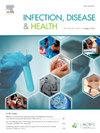疫情爆发期间的感染预防和控制教育需求:对斯里兰卡卫生工作者的定性研究。
IF 2
Q2 PUBLIC, ENVIRONMENTAL & OCCUPATIONAL HEALTH
引用次数: 0
摘要
背景:保护卫生人力对于卫生系统抵御新发传染病暴发至关重要。作为一项大型研究的一部分,我们探讨了卫生保健工作者(HCWs)对感染预防和控制(IPC)指南的看法,以及在斯里兰卡管理2019冠状病毒病(COVID-19)大流行的培训需求,该研究旨在为低收入和中等收入国家(LMICs)的卫生保健工作者(HCWs)制定特定角色的IPC指南。方法:采用定性描述方法,在斯里兰卡卡卢塔拉地区的医院和公共卫生卫生工作者中进行了16次半结构化访谈,其中包括医生、护士、公共卫生助产士和支持人员,如清洁人员。结果:访谈结果在三个主题下进行了描述:EID爆发期间HCW的工作量;突发公共卫生事件期间不断发展的EID管理指导和教育;并希望在突发公共卫生事件期间提供EID指导和IPC教育。COVID-19大流行增加了各部门工作人员的工作量;向卫生保健工作者提供了某种形式的IPC培训,但在遵守方面存在失误;工作人员对易于使用的桌面指南、培训录像、正式培训和获得所有培训材料感兴趣。结论:根据确定的总体和关键具体需求(如培训支持人员)对IPC教育采取量身定制的方法,为提高HCW对斯里兰卡IPC实践的了解提供了关键信息。此外,必须将IPC教育扩展到所有卫生保健工作者,以便在突发卫生事件之前、期间和之后保持最佳做法。本文章由计算机程序翻译,如有差异,请以英文原文为准。
Educational needs for infection prevention and control during outbreaks: A qualitative study with health workers in Sri Lanka
Background
Protecting the health workforce is essential to health systems resilience for emerging infectious disease (EID) outbreaks. We explored healthcare workers (HCWs) perceptions of infection prevention and control (IPC) guidelines and training needs for managing the Coronavirus Disease 2019 (COVID-19) pandemic in Sri Lanka as part of a larger study, which aimed to create role specific IPC guidelines for HCWs in low-and-middle-income countries (LMICs).
Methods
Using a qualitative descriptive approach, sixteen semi-structured interviews were conducted among hospital and public health HCWs including, physicians, nurses, public health midwives and support staff, such as cleaning staff, in Kalutara District of Sri Lanka.
Results
Interview findings are described under three themes: HCW workload during an EID outbreak; evolving EID management guidance and education during a public health emergency; and desired EID guidance and IPC education during a public health emergency. The COVID-19 pandemic increased staff workload across the spectrum; HCWs were provided with some form of IPC training but there were lapses in adherence; and staff were interested in having easy to use desk guides, training videos, formal training and access to all training material.
Conclusion
A tailored approach to IPC education based on identified overall and key specific needs (such as training support staff) provides crucial information to improve HCW knowledge of IPC practices in Sri Lanka. In addition, IPC education must be extended to all HCWs to sustain best practices before, during, and after health emergencies.
求助全文
通过发布文献求助,成功后即可免费获取论文全文。
去求助
来源期刊

Infection Disease & Health
PUBLIC, ENVIRONMENTAL & OCCUPATIONAL HEALTH-
CiteScore
5.70
自引率
5.70%
发文量
40
审稿时长
20 days
期刊介绍:
The journal aims to be a platform for the publication and dissemination of knowledge in the area of infection and disease causing infection in humans. The journal is quarterly and publishes research, reviews, concise communications, commentary and other articles concerned with infection and disease affecting the health of an individual, organisation or population. The original and important articles in the journal investigate, report or discuss infection prevention and control; clinical, social, epidemiological or public health aspects of infectious disease; policy and planning for the control of infections; zoonoses; and vaccination related to disease in human health. Infection, Disease & Health provides a platform for the publication and dissemination of original knowledge at the nexus of the areas infection, Disease and health in a One Health context. One Health recognizes that the health of people is connected to the health of animals and the environment. One Health encourages and advances the collaborative efforts of multiple disciplines-working locally, nationally, and globally-to achieve the best health for people, animals, and our environment. This approach is fundamental because 6 out of every 10 infectious diseases in humans are zoonotic, or spread from animals. We would be expected to report or discuss infection prevention and control; clinical, social, epidemiological or public health aspects of infectious disease; policy and planning for the control of infections; zoonosis; and vaccination related to disease in human health. The Journal seeks to bring together knowledge from all specialties involved in infection research and clinical practice, and present the best work in this ever-changing field. The audience of the journal includes researchers, clinicians, health workers and public policy professionals concerned with infection, disease and health.
 求助内容:
求助内容: 应助结果提醒方式:
应助结果提醒方式:


